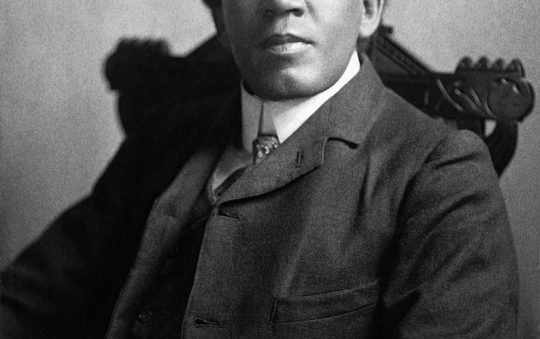LOS ANGELES (AP) — Rarely have a filmmaker and a moment been so perfectly matched as John Singleton and the summer of 1991.
When “Boyz N the Hood” was released that July, Singleton took what had become a cultural obsession — South-Central Los Angeles and the young black men growing up in it — and imbued them with a depth, humor and humanity lacking in the scare stories and songs that up to that point had defined them to much of the world.
Singleton died Monday at age 51, after having a stroke earlier this month.
Nearly 30 years earlier he was fresh outta film school and in his early 20s when he took elements of his own upbringing, bathed it in the hip-hop culture of the late 80s and early 90s, and emerged with “Boyz N the Hood,” which would give him a groundbreaking Academy Award nomination and a permanent place in the American film pantheon.
Stories about gang violence and the drug trade were a constant on newscasts at the time, and in the developing 1992 presidential race candidates angled to show they would be toughest on street crime.
N.W.A, with its explosive beats and stinging rhymes, told such tales from the inside. The group was breaking up in 1991, but its influence was at its apex. Singleton took his title from a song by one member, Eazy-E, and cast another, Ice Cube, as one of his three leads in his acting debut.
ingleton took yet another approach to the same stories. He was as interested in boys as the hood. He begins with his central characters as grade-schoolers trying to exist in an environment that refuses to let them be kids.
The first act plays like an urban version of Rob Reiner’s “Stand by Me” from five years earlier, with kids walking along railroad tracks and trying to out-swear one another. One line, “y’all wanna see a dead body?” suggests the similarity was deliberate.
Seven years later we see the same boys as young adults. Ice Cube is a Crips gang member who plays dominoes and speaks wisdom: “Either they don’t know, don’t show, or don’t care about what’s going on in the hood,” he says as the film ends.
Cuba Gooding Jr. is a standout at school and work who navigates a neighborhood that threatens to pull him down.
Lawrence Fishburne as Gooding’s stern, politically woke father, Jason “Furious” Styles, made for one of the more memorable dads in screen history, his angry gaze making for many memes two decades later.
It also featured a small role for young Regina King, who would shine alongside Janet Jackson in Singleton’s follow-up, “Poetic Justice,” in 1993, and like Gooding would go on to win an Oscar.
Singleton made all of them both feel real, sympathetic and lovable, without sacrificing any of the harshness of their lives or the ways some had to lash out against their circumstances.
It was the first look at this world for some audiences. For others, it was the first time they saw themselves.
“Boyz N The Hood was a seismic event,” filmmaker Brandon David Wilson said on Twitter. “I literally saw friends from elementary and middle school in the film playing bit parts. It was filmed in my neighborhood. I’m an L.A. native, but it wasn’t until BNTH that I saw (asterisk)my(asterisk) L.A. onscreen.”
Less than a year after the movie came out, the 1992 LA riots broke out, making the circumstances shown in the movie feel all the more vital. Singleton was outside the courthouse at the time of the Rodney King beating verdict, which triggered the riots, and told local news cameras that trouble was likely to follow. He died April 29, the 27th anniversary of that day.
Ice Cube made note of the date in paying tribute to Singleton Monday.
“Your passion for telling our stories from our point of view was more than an obsession, it was your mission in life,” Ice Cube said in a statement. “On April 29, 1992 you were on TV warning the world what was to come. I’m sad today, cause on this April 29th who will warn the world what’s to come?”
That same year, Singleton became the first black filmmaker, and the youngest person ever, to be nominated for an Oscar for best director. It appeared that recognition for and support for black filmmakers was a burgeoning trend.
But nearly 30 years later only five more — Lee Daniels, Barry Jenkins, Jordan Peele, Steve McQueen and Spike Lee — had been nominated, and none had won.
Most of those men paid effusive tribute to Singleton on social media Monday.
“John Singleton’s Films Will Live On Forever,” Lee said on Instagram.
Dozens of copycats of “Boyz N the Hood” would come in the ensuing years, with none finding its balance of grit, craft and heart.
Singleton didn’t quite find it either. As with Orson Welles and “Citizen Kane” half a century earlier, it can be difficult for a filmmaker who finds a perfect moment to find another one, and no other Singleton film would get close to the same adulation.
But “Boyz N the Hood” has never left the public’s memory.
In 2002, it was added to the National Film Registry by the Library of Congress, which called it “an innovative look at life and the tough choices present for kids growing up in South Central Los Angeles.”








